TheHerbProf.com is a treasure trove of knowledge for those interested in natural healing and herbal remedies. The website is run by Paul Johnston MD. A naturopathic who has not only received extensive education in the field but also has personal experience in self-healing.
Folic acid foods, also known as vitamin B9, is an essential nutrient that helps the body produce new cells. It is particularly important for pregnant women, as it can help prevent birth defects in the baby’s brain and spine. However, folic acid is important for everyone, as it can help prevent heart disease, stroke, and certain types of cancer.
There are many foods that are high in folic acid, including leafy greens, citrus fruits, legumes, and eggs. Incorporating these foods into your diet can help ensure that you are getting enough folic acid to support your overall health. Additionally, many processed foods, such as breads and cereals, are fortified with folic acid to help people meet their daily needs.
If you are concerned about your folic acid intake, it may be helpful to talk to your doctor or a registered dietitian. They can help you determine how much folic acid you need based on your age, sex, and other factors, and can provide guidance on how to incorporate folic acid-rich foods into your diet.
Understanding Folic Acid
What Is Folic Acid?
Folic acid is a synthetic form of folate, which is a water-soluble B vitamin. Folate is naturally found in many foods, including leafy greens, fruits, and beans. Folic acid is commonly added to foods such as bread, cereal, and pasta to help prevent folate deficiency.
Differences Between Folate and Folic Acid
While folate and folic acid are similar, there are some differences between them. Folate is the natural form of vitamin B9, while folic acid is a synthetic form. Folate is found in a variety of foods, while folic acid is added to some foods and is available as a supplement.
The Role of Folic Acid in the Body
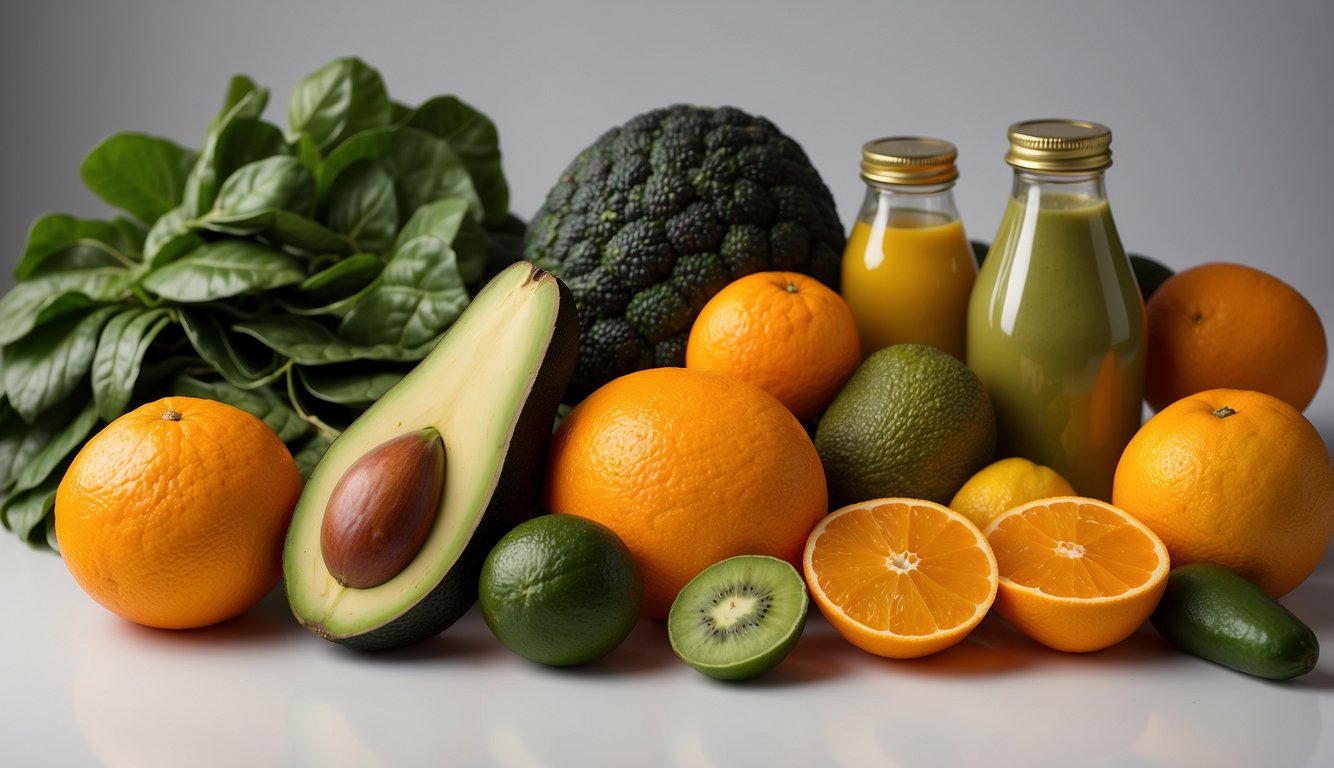
Folic acid plays a crucial role in the body, particularly in cell division and the formation of DNA and RNA. It also helps to produce red blood cells and prevent anemia. Additionally, folic acid is important for fetal development during pregnancy, as it can help prevent birth defects of the brain and spine.
Recommended Dietary Allowance and Tolerable Upper Intake Level
The recommended dietary allowance (RDA) for folic acid is 400 micrograms per day for adults. Pregnant women should aim for 600 micrograms per day, while breastfeeding women should aim for 500 micrograms per day. The tolerable upper intake level (UL) for folic acid is 1,000 micrograms per day for adults, as high doses of folic acid can mask the symptoms of a vitamin B12 deficiency.
Folic acid is a crucial nutrient that plays a vital role in the body’s functions. It is important to get enough folic acid in your diet to prevent deficiency and promote overall health.
Health Benefits of Folic Acid

Folic acid, also known as vitamin B9, is an essential nutrient that plays a crucial role in many bodily functions. It is particularly important for pregnant women, as it helps prevent birth defects in babies. However, folic acid is also beneficial for everyone, regardless of age or gender.
Preventing Birth Defects
One of the most well-known benefits of folic acid is its ability to prevent birth defects, particularly neural tube defects. Neural tube defects occur when the neural tube, which develops into the brain and spinal cord, does not close properly during early pregnancy. Folic acid can help prevent these defects by ensuring that the neural tube develops properly.
Reducing Heart Disease and Stroke Risk
Folic acid has also been shown to reduce the risk of heart disease and stroke. This is because it helps lower levels of homocysteine, an amino acid that can damage the lining of blood vessels and increase the risk of heart disease and stroke.
Supporting Cell Growth and DNA Synthesis
Folic acid is essential for cell growth and DNA synthesis, which is why it is particularly important during pregnancy, when cells are rapidly dividing to form a baby. However, it is also important for adults, as it helps maintain healthy cells and tissues throughout the body.
Folic Acid and Cancer Prevention
Finally, there is some evidence to suggest that folic acid may help prevent certain types of cancer. For example, studies have shown that people who consume high levels of folic acid have a lower risk of colon cancer than those who consume low levels.
Folic acid is a vital nutrient with many health benefits, including preventing birth defects, reducing the risk of heart disease and stroke, supporting cell growth and DNA synthesis, and possibly even preventing certain types of cancer. It is important to ensure that you are getting enough folic acid in your diet, either through food sources or supplements, to ensure optimal health.
Folic Acid Deficiency

As someone who is interested in consuming a healthy diet, it is important to be aware of the possibility of developing a folic acid deficiency. Folic acid, also known as folate, is a B-vitamin that plays an important role in the body’s production of new cells, including red blood cells. Folic acid is especially important for pregnant women, as it helps prevent birth defects of the baby’s brain and spine.
Causes of Folic Acid Deficiency
There are several causes of folic acid deficiency, including not consuming enough foods that are high in folic acid, such as leafy green vegetables, legumes, and citrus fruits. In addition, some medical conditions can interfere with the body’s absorption of folic acid, such as celiac disease and inflammatory bowel disease. Alcohol consumption can also interfere with the body’s ability to absorb folic acid.
Symptoms and Health Risks
The symptoms of folic acid deficiency can include fatigue, weakness, and anemia. In pregnant women, a deficiency in folic acid can lead to neural tube defects in the baby, such as spina bifida and anencephaly. In addition, folic acid deficiency has been linked to an increased risk of certain types of cancer, such as colon cancer.
Managing and Treating Deficiency
If you suspect that you may have a folic acid deficiency, it is important to talk to your healthcare provider. They can perform a blood test to determine if you are deficient in folic acid. Treatment for folic acid deficiency typically involves increasing your intake of folic acid through dietary changes or supplements. It is important to follow your healthcare provider’s recommendations for managing and treating folic acid deficiency.
Folic acid deficiency can have serious health consequences, especially for pregnant women. By consuming a diet rich in folic acid and working with your healthcare provider to manage any underlying medical conditions, you can help prevent a deficiency in this important nutrient.
Dietary Sources of Folic Acid

Folic acid is an essential nutrient that our body needs to produce new cells and maintain healthy brain function. It is especially important for pregnant women as it helps in the development of the baby’s brain and spinal cord. In this section, I will discuss the various dietary sources of folic acid.
Folic Acid in Fortified Foods
Fortified foods are those that have been enriched with nutrients that are not naturally present in them. In the United States, folic acid is added to many fortified foods such as bread, cereal, and pasta. These fortified foods are a convenient way to get the daily recommended intake of folic acid.
Natural Folate in Vegetables
Folate is the natural form of folic acid found in foods. Vegetables such as leafy greens, spinach, asparagus, broccoli, peas, and Brussels sprouts are excellent sources of natural folate. These vegetables are not only rich in folate but also contain other essential vitamins and minerals.
Legumes, Nuts, and Seeds
Legumes such as beans, lentils, and chickpeas are a great source of folate. Nuts and seeds such as almonds, sunflower seeds, and flax seeds are also rich in folate. These foods are not only a good source of folate but also provide other nutrients such as protein and healthy fats.
Folic Acid in Animal Products
Animal products such as eggs and beef liver are a good source of folic acid. However, it is important to note that excessive consumption of animal products can lead to health problems such as heart disease and high cholesterol.
Fruits Rich in Folate
Fruits such as oranges, papaya, and strawberries are rich in folate. Citrus fruits such as oranges and grapefruits are not only a good source of folate but also contain other essential vitamins such as vitamin C.
Folic acid is an essential nutrient that can be obtained from a variety of dietary sources. Fortified foods, vegetables, legumes, nuts, seeds, animal products, and fruits are all excellent sources of folic acid. It is important to maintain a balanced diet that includes a variety of these foods to ensure adequate intake of folic acid.
Folic Acid Supplementation
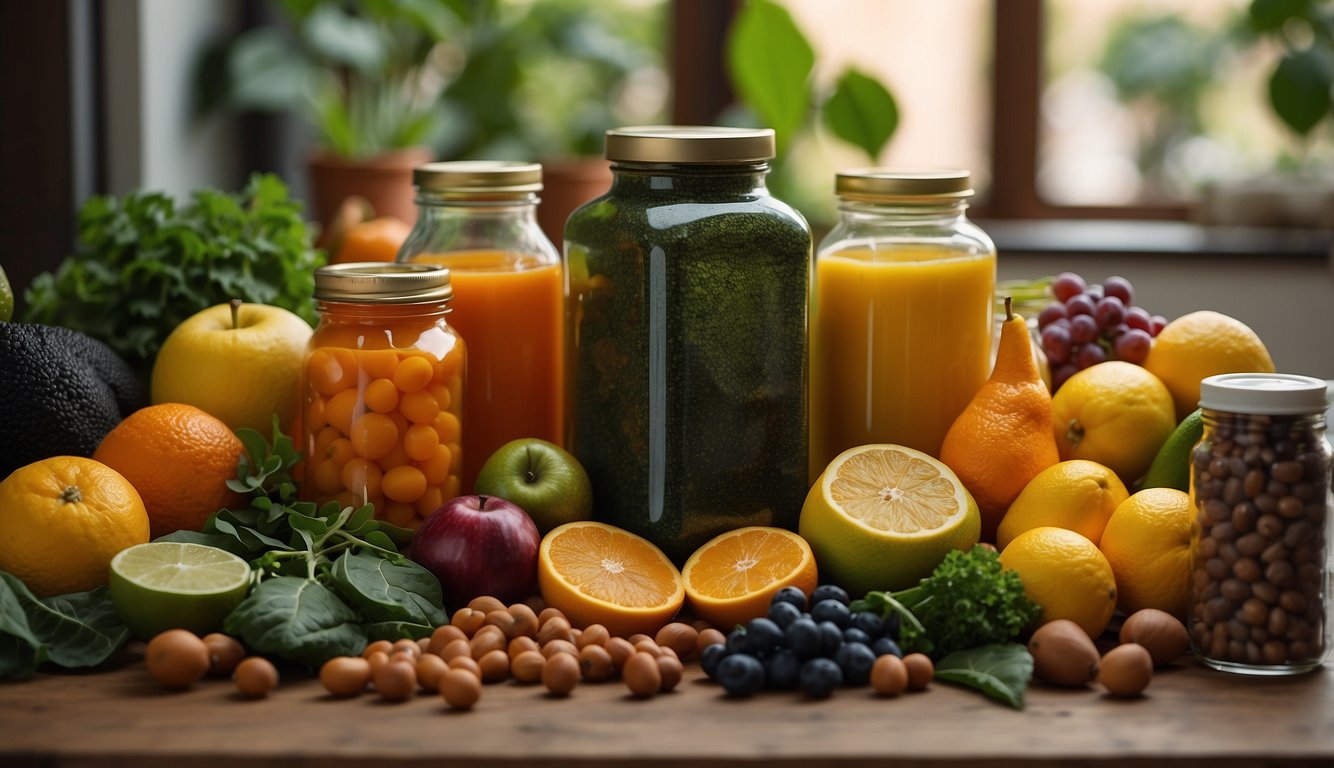
As the name suggests, folic acid supplements are synthetic forms of folate that are available in the form of pills, capsules, and tablets. While most people can get the recommended daily intake of folate from their diet, some might need to consider supplementation.
When to Consider Supplements
Pregnant women, women who are trying to conceive, and those who have had a previous pregnancy affected by a neural tube defect should take a prenatal vitamin that contains folic acid. This is because folic acid plays a crucial role in preventing birth defects of the baby’s brain and spine.
Apart from that, people who have a deficiency of folate or are at risk of a deficiency might need to take supplements. This includes people with malabsorption disorders, alcoholics, and people who have had weight loss surgery.
Choosing the Right Supplement
When choosing a folic acid supplement, it is essential to look for a reputable brand that uses high-quality ingredients. It is also important to choose a supplement that contains the right dosage of folic acid. The recommended daily intake of folic acid for most adults is 400-600 micrograms per day.
Supplementation for Specific Groups
While most people can get enough folate from their diet, some groups might need to take supplements. For example, pregnant women need to take a prenatal vitamin that contains folic acid to prevent birth defects of the baby’s brain and spine.
On the other hand, men and non-pregnant women who are not at risk of a folate deficiency generally do not need to take folic acid supplements. However, it is always best to consult a healthcare provider before starting any supplementation.
It is also important to note that high doses of folic acid supplements can cause side effects such as nausea, bloating, and gas. Therefore, it is essential to follow the recommended dosage and consult a healthcare provider before taking any supplements.
Folic Acid and Chronic Conditions
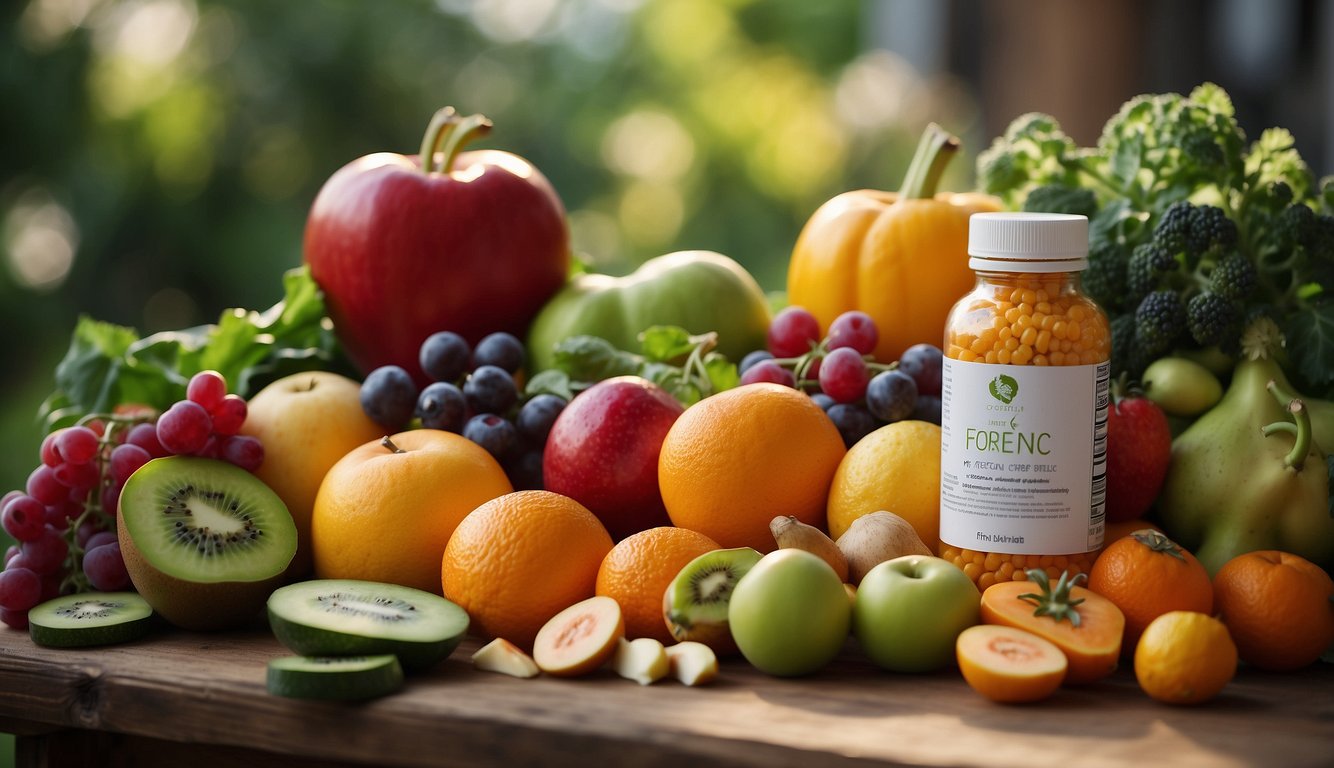
As a B-vitamin, folic acid plays a vital role in maintaining good health. Adequate intake of folic acid is associated with a reduced risk of chronic diseases, including heart disease, stroke, and certain types of cancer. In this section, I will discuss the role of folic acid in cardiovascular health, neural health, and its impact on diabetes and metabolic health.
Folic Acid’s Role in Cardiovascular Health
Folic acid helps to lower homocysteine levels in the blood. High levels of homocysteine have been associated with an increased risk of heart disease, stroke, and other cardiovascular diseases. Studies have shown that folic acid supplementation can lower homocysteine levels and reduce the risk of cardiovascular disease.
Foods high in folic acid, such as leafy greens, legumes, and fortified cereals, can help to prevent heart disease. Incorporating these foods into your diet can help to ensure that you are getting enough folic acid to support your cardiovascular health.
Folic Acid and Neural Health
Folic acid is essential for the proper development and functioning of the nervous system. Studies have shown that folic acid deficiency during pregnancy can lead to neural tube defects in the developing fetus. Neural tube defects are serious birth defects that affect the brain and spinal cord.
Folic acid is also important for maintaining cognitive function in adults. Inadequate intake of folic acid has been linked to an increased risk of dementia and depression. Foods high in folic acid, such as leafy greens, legumes, and fortified cereals, can help to support neural health.
Folic Acid’s Impact on Diabetes and Metabolic Health
Folic acid plays an important role in glucose metabolism and insulin sensitivity. Studies have shown that folic acid supplementation can improve insulin sensitivity and reduce the risk of type 2 diabetes.
In addition, folic acid has been shown to reduce inflammation, which is a risk factor for many chronic diseases, including diabetes. Foods high in folic acid, such as leafy greens, legumes, and fortified cereals, can help to support metabolic health and reduce the risk of chronic diseases.
Folic acid is an essential nutrient that plays a vital role in maintaining good health. Adequate intake of folic acid can help to reduce the risk of chronic diseases, including heart disease, stroke, and certain types of cancer. Incorporating folic acid-rich foods into your diet can help to support your cardiovascular health, neural health, and metabolic health.
Nutritional Synergies

As with many nutrients, folic acid’s benefits can be enhanced or diminished by the presence of other vitamins and minerals in the body. Here are some nutritional synergies that can help maximize the benefits of folic acid:
Interactions with Other B Vitamins
Folic acid works together with other B vitamins, such as vitamin B6 and vitamin B12, to support various bodily functions. For example, vitamin B6 is necessary for the conversion of folic acid into its active form, which is required for DNA synthesis and red blood cell formation. Vitamin B12 also plays a role in the metabolism of folic acid and helps prevent anemia.
Folic Acid and Mineral Absorption
Folic acid can enhance the absorption of certain minerals in the body, such as iron and magnesium. Iron is essential for the production of hemoglobin, which carries oxygen to the body’s cells. Magnesium is necessary for the proper functioning of many enzymes in the body, as well as for bone health.
Antioxidants and Folic Acid
Folic acid is a powerful antioxidant that can help protect the body against oxidative stress, which can damage cells and contribute to the development of chronic diseases. In addition, other antioxidants, such as vitamin C and vitamin A, can work together with folic acid to enhance its antioxidant properties.
Overall, it is important to maintain a balanced and varied diet that includes a variety of vitamins and minerals, including folic acid, to support optimal health. By understanding the nutritional synergies that exist between different nutrients, we can make informed choices about our diet and lifestyle to support our overall well-being.
Special Considerations
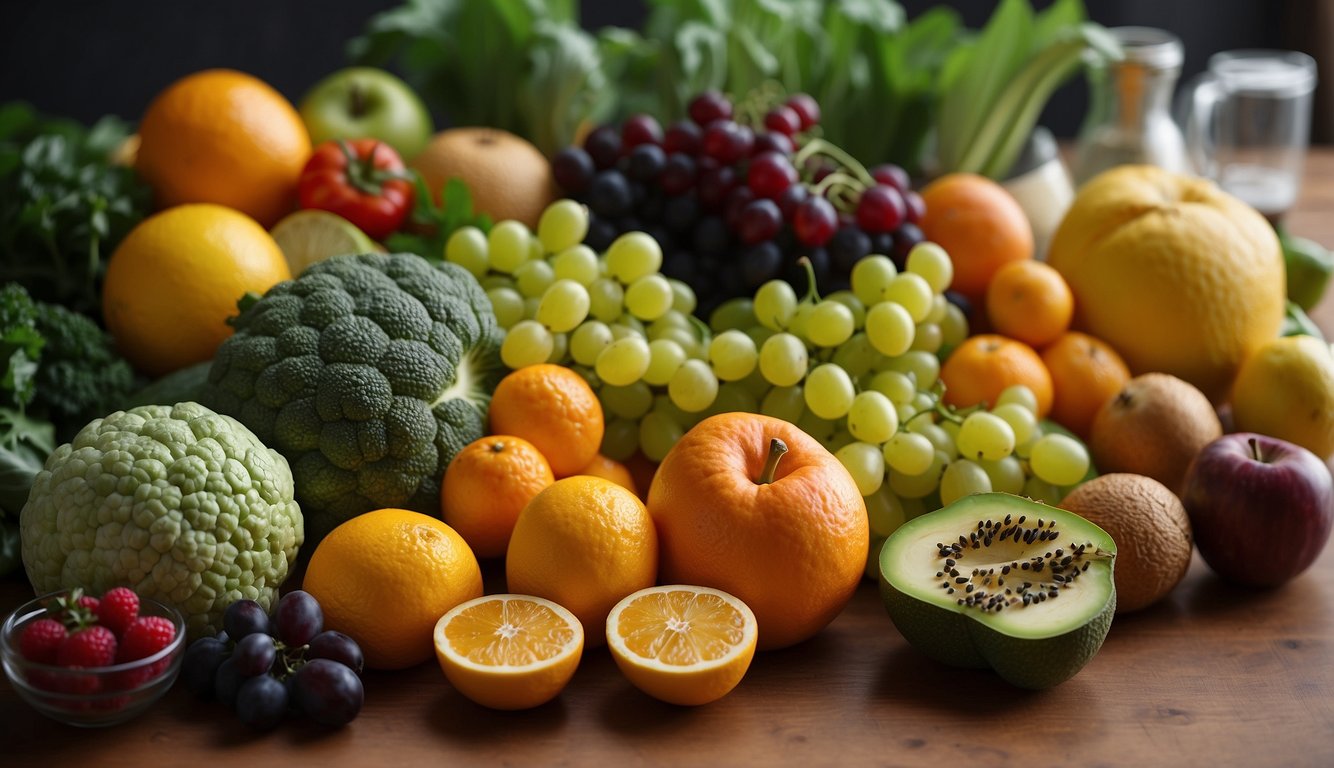
Folic Acid During Pregnancy
As a pregnant woman, it is important to consume adequate amounts of folic acid to prevent neural tube defects in your developing baby. The recommended daily intake of folic acid during pregnancy is 600-800 micrograms [1]. Foods high in folic acid, such as legumes, leafy greens, and fortified cereals, can help you meet your daily needs. However, it may be difficult to consume enough folic acid through diet alone, so your healthcare provider may recommend a prenatal vitamin supplement containing folic acid.
Folic Acid for the Elderly
As we age, our bodies may have a harder time absorbing nutrients, including folic acid. Low levels of folic acid have been associated with an increased risk of cognitive decline and dementia in the elderly [2]. Therefore, it is important for older adults to consume adequate amounts of folic acid through their diet. Foods high in folic acid include leafy greens, legumes, and fortified cereals.
Folic Acid in Individuals with Genetic Variations
Some individuals may have genetic variations that affect their ability to absorb or utilize folic acid. For example, individuals with the MTHFR gene mutation may have a reduced ability to convert folic acid into its active form [3]. If you have a genetic variation that affects your folic acid metabolism, your healthcare provider may recommend a higher intake of folic acid or a different form of folate, such as L-methylfolate.
It is important to note that certain medications, such as methotrexate, can interfere with folic acid metabolism and increase the risk of folate deficiency [4]. Additionally, individuals with celiac disease or those who consume high amounts of alcohol may have an increased risk of folate deficiency [5]. If you have concerns about your folic acid intake, speak with your healthcare provider or a registered dietitian.
[1] National Institutes of Health. Office of Dietary Supplements. (2022). Folate Fact Sheet for Health Professionals. https://ods.od.nih.gov/factsheets/Folate-HealthProfessional/
[2] Morris, M. S., Jacques, P. F., Rosenberg, I. H., & Selhub, J. (2001). Folate and vitamin B-12 status in relation to anemia, macrocytosis, and cognitive impairment in older Americans in the age of folic acid fortification. The American Journal of Clinical Nutrition, 73(4), 627-637.
[3] Bailey, L. B., Stover, P. J., McNulty, H., Fenech, M. F., Gregory, J. F., Mills, J. L., Pfeiffer, C. M., Fazili, Z., Zhang, M., Ueland, P. M., Molloy, A. M., Caudill, M. A., Shane, B., Berry, R. J., & Bailey, R. L. (2015). Biomarkers of Nutrition for Development-Folate Review. The Journal of Nutrition, 145(7), 1636S-1680S.
[4] National Institutes of Health. Office of Dietary Supplements. (2022). Folate Fact Sheet for Health Professionals. https://ods.od.nih.gov/factsheets/Folate-HealthProfessional/
[5] National Institutes of Health. Office of Dietary Supplements. (2022). Folate Fact Sheet for Health Professionals. https://ods.od.nih.gov/factsheets/Folate-HealthProfessional/
To Combat Insomnia, Stress, Restlessness, and Anxiety, Plus Many Other Common Psychological Problems
A total of 41% of American workers interviewed reported an increase in work stress on their jobs compared to a year earlier. Another poll taken among Americans showed that more than one-half of the respondents (58%) reported having experienced insomnia at least a few nights a week. This is a trend in American health, where we are seeing many common psychological problems such as stress and insomnia moving to an epidemic stage (epidemic means 1 in 4 have the ailment).
Why have these psychological problems reached epidemic numbers?
There are many reasons for stress, insomnia, restlessness, and anxiety, such as significant personal events, like losing a job, marital problems, money worries and generally worrying. Other causes can include physical illness that causes pain, depression, shift work, caffeine or alcohol consumption, and medication side effects. Each one is a drain on your nutritional support system, this is a scientific fact.
The drain on your nutritional support system is the common thread here which runs through all of these problems. What do I mean when I say drain on your nutritional support system? I mean that each one of those problems burns up large amounts of your B vitamins and minerals. Those B vitamins and minerals are your nutritional support and if they get low the problems you are experiencing will seem to grow in number and severity.

That nutritional support system is the foundation from which you handle everyday problems. When that foundation is supporting you; you feel more confident and you handle your everyday troubles and crises with ease and consideration. If you are not supported, you may handle the problem, but you feel the physical and emotional drain on your body and mind. Then where is the next problem/crisis coming from? This is the modern world with plenty of them to spare, you need support.
Have The Following Symptoms?
Are you experiencing some of the symptoms of a drained nutritional support system, stress, anxiety, insomnia, or restlessness? Well, do not expect your body to run trouble-free without replacing the nutrition in that system. Not replenishing that system is like expecting your car to run without oil. Look below at the different B vitamins and see the symptoms you can acquire due to their deficiencies, all scientifically proven.
Why can’t we just get our vitamins from our diet?
You just have to look around you to see the evidence that the majority of Americans have no idea what a good diet is.
At every turn in our society, we are, in fact, encouraged to eat foods that have almost no nutritional value by the media. Most markets do not offer us much of a choice. The food is refined, irradiated, or poorly grown at the farm. All three destroy the nutritional value of the food. The very people who are supposed to protect our health instead defend the manufacturer and spin the information so much that they are confusing. They even make laws to stop anyone from saying that eating certain whole foods might prevent or cure you of many diseases, even though it is true.
I have been involved with naturopathic medicine and nutrition for over 20 years and I find it difficult to find whole foods that are truly nutritional in any market or restaurant. The odds are stacked against you having any better luck than I do. So I supplement to make sure that I keep a balance of B vitamins and minerals beyond what I eat and I suggest you do the same thing. Why allow yourself and your family to be caught up in the same health crisis you see everywhere today?
Important Note – Get The Perfect Supplement Here
Basic law of nature and another scientific fact (see article, ‘The Truth About Vitamins‘), if your B Stress formula is not from food you cannot absorb it! It is a big basic law of nature; we depend on plants for our nutrition. If your vitamin supplement does not say the words somewhere on the label ‘Whole Food Vitamins’, ‘Made From Whole Foods’ or ‘Food Vitamins‘. Do not waste your money on it because it is synthetic and you cannot absorb it.

Below Is What Your Stress B Vitamin Supplement Should Contain In A Whole Food Form. You Can Get The Supplement Here
Vitamin A
Essential, either directly or indirectly, for the proper functioning of most organs of the body’ and may prevent stress-induced immunological disorders.
Vitamin C
If, you are not getting enough vitamin C you may be tired, you may bruise easily, and you may just feel generally ill.
Thiamin B-1
Thiamin supplements have been shown to improve mood and mental function and to relieve stress and muscle tension.
Riboflavin B-2
People today have an increased need for Vitamin B-2 (Riboflavin) in stressful situations and it is the most common of vitamin deficiencies. Highly beneficial, for anxiety, stress, and fatigue.
Niacinamide B-3 (called the happy vitamin)
A, deficiency of this vitamin can cause depression. Left untreated, it can lead to psychosis and dementia. Symptoms of a deficiency include agitation, anxiety, and mental lethargy.
Vitamin B-6
Vitamin B6 (pyridoxine) levels are typically quite low in depressed patients, especially women taking birth-control pills or other forms of estrogen.
Folate
Depression is the most common symptom of folic acid deficiency. Other symptoms of folic acid deficiency are: fatigue, apathy, and dementia.
B-12
Recent studies have shown that there is a definite benefit to be gained by giving vitamin B12 to patients suffering from depression, fatigue and mental illnesses of other kinds. Even a slight deficiency of B12 is found to produce marked symptoms.
Pantothenate
Low levels can lead to sleep disturbances headaches, gastrointestinal distress, and fatigue.
Biotin
Necessary for cell growth, the production of fatty acids, and the metabolism of fats and amino acids. It plays a role in the Citric acid cycle, which is the process by which biochemical energy is generated.
Magnesium
Dr. Bernard Jensen wrote, ‘Magnesia, an inorganic substance,’ is actually a combination of oxygen and magnesium’.Man must have the biochemical (organic) form of magnesium rather than the inorganic form’. The patient who is highly nervous, excitable, overly emotional, and erratic in actions needs magnesium as a sedative’.
Zinc
A deficiency of zinc will depress the immune system and leave you at a higher risk of infection.
Potassium
Deficiencies of potassium can lead to behavioral disturbances
Choline
The supplement is touted as beneficial for mood, mental acuity, and heart health.
Inositol
Studies have found that it also may help patients who suffer from depression, anxiety, and obsessive-compulsive disorder.
PABA
Deficiency symptoms include fatigue, irritability, depression, nervousness, headache, constipation, and other digestive disorders.
Example Of A Nutritional Herbal Formula For Stress, Insomnia, Restlessness, And Anxiety. Also Helps Maintain Your Nutritional Support System. Can Be Taken With B Stress Supplements.
In wild-crafted or organic form this herbal formula is nourishing, tranquilizing, and anti-spasmodic in action. It is designed to encourage composure while reducing anxiety, tension, and stress. It is intended to help calm down, rest, relax, sedate, and relieve nervous tension and muscle spasms. Listed below are each of the herbs and their benefits and safety.
Important Note: If your herbal supplement does not say that it is organic or wild-crafted then it could be grown anywhere under less than healthy conditions. This is one area where the government rigorously enforces the law and so does the herbal industry.
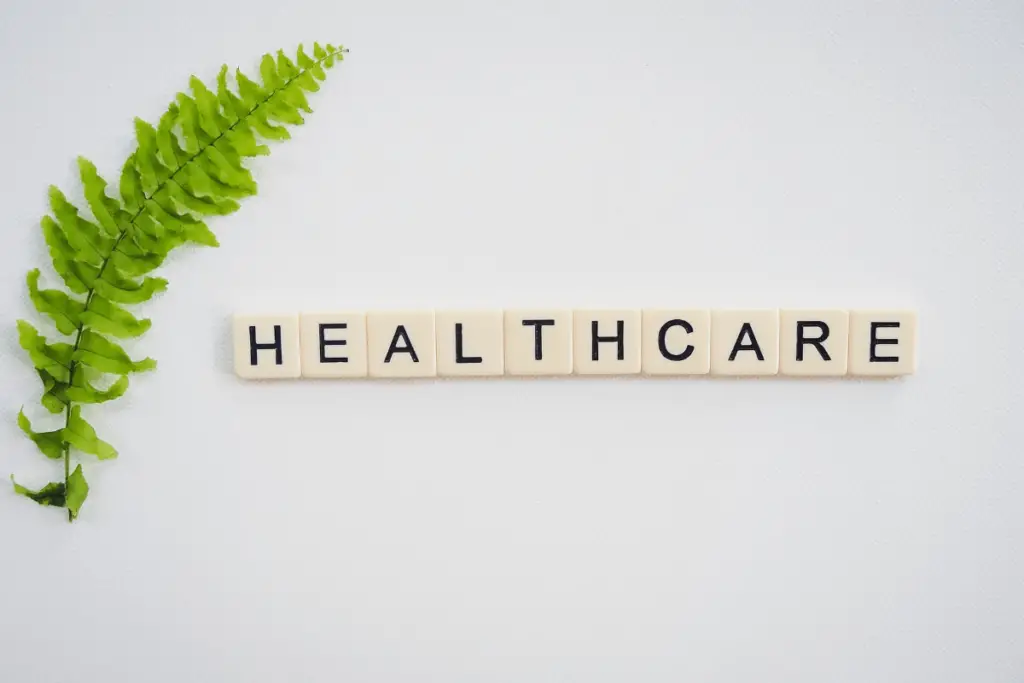
The information given here is based on thousands of years of traditional safe use.
Black Cohosh root
Black Cohosh is used as a tonic for the central nervous system and is regarded as a nervine. It is an excellent, safe sedative for nervous disorders, and is put in many nerve combinations.
Valerian root
Used for over 1,000 years to calm all kinds of nervous disorders. In centuries past it was taken as often as coffee in Europe. Called ‘Nature’s Tranquilizer’; because of the Valerian root, it calms the nerves without the side effects of comparable orthodox drugs.
Blue Cohosh root
Blue Cohosh may be used in cases where an anti-spasmodic is called for and it can also calm frazzled nerves and relieve anxiety.
Wild Yam root
Wild yam acts as a sedative on the nerves governing muscles which relax the stomach walls and abdominal area. This root is very relaxing and soothing to the nerves of people who suffer from anxiety.
Hops flower
It is an excellent nerve tonic that is fast-acting where insomnia and nightmares are a problem. Hops are an excellent food source of B3 known as the happy vitamin.
Passion Flower herb
Used to soothe the nervous system without the side effects of depression or disorientation. Encourages deep restful sleep without morning hangover effects.
Skullcap herb
Relaxes nervous tension, induces calm, and counteracts sleeplessness. Has shown itself to be excellent for breaking addictions and easing problems associated with drug withdrawal.
Lobelia herb & seed
Known, to be a powerful physical relaxant, affecting the nervous system. It is considered one of the strongest and safest relaxants in the herbal kingdom.
Chamomile flower
Is best known as a soothing digestive tonic which is a sedative in nature and used for calming the nerves and inducing sleep.
Wood Betony herb
It calms the nerves, soothes tension, tones the stomach, and is a remedy for chronic headaches.
Suggested Guidelines:
Not recommended if pregnant, nursing, or currently taking prescription or over-the-counter medications. Consult with a qualified healthcare professional if the condition persists or increases.
The Naturopathic Way and The Herb Prof: A Natural Connection
Let’s delve into the world of The Naturopathic Way, a holistic approach to health, and its unique synergy with our website, theherbprof.com.
The Naturopathic Way is a path that embraces the healing power of nature. It’s like a journey through a forest of wellness!
But how does this tie into theherbprof.com? Well, we’re all about sharing the wisdom of herbs. And The Naturopathic Way? It’s the philosophy we live by!
We’re a perfect pair, really. Theherbprof.com provides the platform, and The Naturopathic Way is the guiding principle we follow. We highlight the herbs that embody this approach, and it brings a wealth of information to our readers.
So, when you’re exploring theherbprof.com, make sure to visit our The Naturopathic Way section. It’s a dynamic duo you won’t want to miss! And remember, laughter is the best medicine, but a little herbal knowledge might just be the perfect sidekick! Check our home page here!
References:
Little Herb Encyclopedia, by Jack Ritchason; N.D., Woodland Publishing Incorporated, 1995
The Ultimate Healing System, Course Manual, Copyright 1985, Don Lepore
Planetary Herbology, Michael Tierra, C.A., N.D., Lotus Press, 1988
Handbook of Medicinal Herbs, by James A. Duke, Pub. CRP Second Edition 2007
The Complete Medicinal Herbal, by Penelope Ody, Published by Dorling Kindersley
Before You Go – Check the Following Articles!
Aging Prematurely: How To Reverse It!
Check these Categories:
Frequently Asked Questions – Folic Acid Foods

What are the best dietary sources of folic acid for pregnant women?
As a B-vitamin, folic acid is found in many foods. However, some foods are especially rich in folic acid, making them ideal for pregnant women who need to increase their intake. Examples of foods that are high in folic acid include leafy green vegetables such as spinach, kale, and collard greens, as well as citrus fruits, beans, and fortified cereals.
Which fruits are rich in folic acid to include in a pregnancy diet?
Fruits such as oranges, strawberries, raspberries, and papayas are all good sources of folic acid. Additionally, avocados and bananas are also great options to include in a pregnancy diet.
How can one identify and manage a folic acid deficiency?
A folic acid deficiency can present itself in a variety of ways, including fatigue, mouth sores, and a swollen tongue. If you suspect that you may have a deficiency, it is important to speak with your healthcare provider. A healthcare provider can perform a blood test to determine if you have a deficiency and can provide guidance on how to manage it.
What are the health benefits associated with adequate folic acid intake?
Adequate folic acid intake has been shown to reduce the risk of certain birth defects, such as neural tube defects. Additionally, folic acid has also been linked to a reduced risk of heart disease and stroke.
Are there any foods that should be avoided when supplementing with folic acid?
There are no specific foods that need to be avoided when supplementing with folic acid. However, it is important to speak with your healthcare provider before beginning any supplementation regimen.
Can you list foods that are particularly high in folic acid?
Yes, some of the foods that are particularly high in folic acid include leafy greens such as spinach and kale, as well as beans, peas, and lentils. Additionally, fortified cereals and breads can also be good sources of folic acid.


